
Dr. Peter O’Toole from the University of York (United Kingdom) has started a podcast series to better understand not only what drives great scientists but also to learn what really inspires them and what they enjoy most in life.
We spoke with Dr. O’Toole about his background and his thoughts for this podcast series.
Tell us a little bit about yourself:
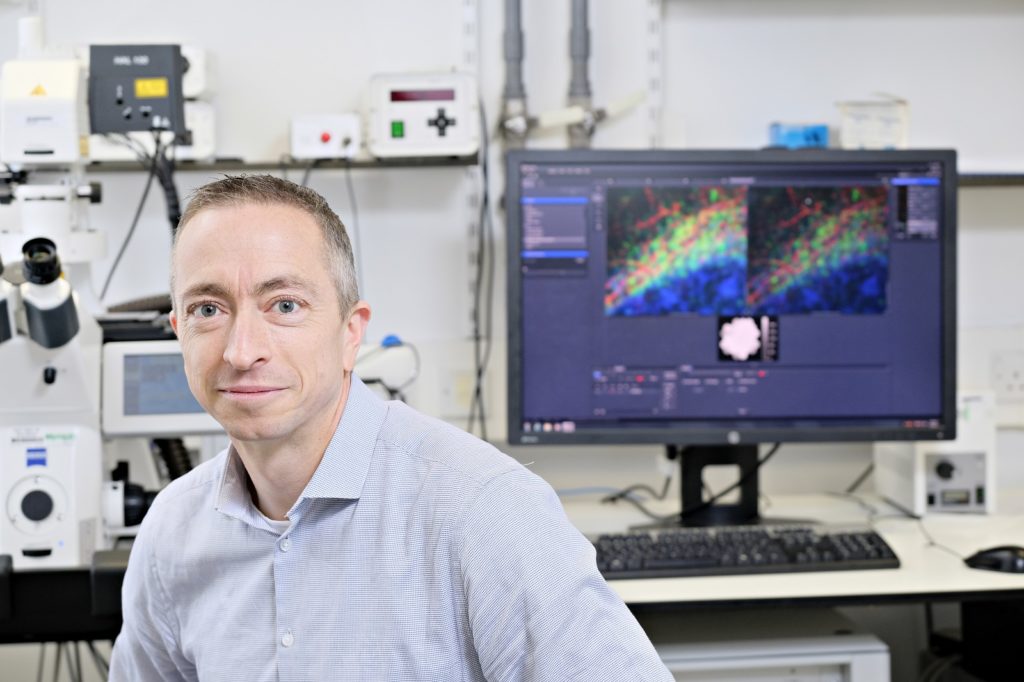
I really disliked microscopes in my undergraduate years, as they always underperformed and assumed it was my ineptitude! I really engaged with microscopes during my PhD in the Cherry Lab at Essex, helping develop single particle imaging of the blood protein spectrin, which was easy to manipulate into dimers or tetramers. This was then used as proof of principle that single particle imaging could be used to identify different oligomeric states of proteins on cell surfaces.
My next postdoc post was then to oversee and maximise the potential of a new Bio-Rad Radiance 2000 confocal microscope, which had just launched. This was almost a postdoctoral position without remit and to be able to explore and maximise the technology in the Department! This is when I realised that I loved the technology itself, more than the various biological questions. This post enabled me to collaborate with multiple groups, and selfishly, I was very keen exploit the system for FRAP experiments and team up with one of the cancer labs (Norton) at Essex.
Realising that the technology was my primary driver, I then looked at the next step posts. This nearly resulted in myself and young family heading to Baylor College of Medicine, but the York post was re-advertised with more explicit research opportunities. I grabbed this opportunity and have not looked back since. York has been a great, supportive environment to develop my own career.
How did you come up with the idea for “The Microscopists” podcasts?
Over coffee with Scott Fraser and then another with Ernst Stelzer!
I like to present, but get oddly nervous when introducing plenary/keynote speakers, and at ELMI 2018 I had to introduce a fair few people.
Before ELMI, I had to introduce Lucy Collinson at mmc2017. I know Lucy really well and decided to make it a little different and introduce her using more personal information that you could not read in the programme biography. Something fun that gives the audience a true feel for how dynamic the speaker really is. I found this far easier to deliver personally and the audience were really engaged with a few laughs which also kick started the talk off on a high and a more relaxed atmosphere, which I thought was also good for the speaker as well.
As such, I decided to try the same at ELMI and sat down for coffee with those that I had to introduce and glean some fun information off each. They were all really obliging and revealed some fun facts that was great to kick them off with. At the same time, it also revealed how these megastars were not all work, work, work, but had fun and varied outside interests that I thought would be great for younger scientists to hear about and appreciate. It shows that you should follow your strengths and balance work with at least some fun and passion outside of work.
The podcast idea is not however just about inspiring younger scientists, but to also allow us to capture the true nature and character of the great scientists of our time. I wish we could go back in time and meet and learn about some of the great pioneers, but this is simply not possible. Hopefully this series will last through time and people can see what today’s pioneers are really like.
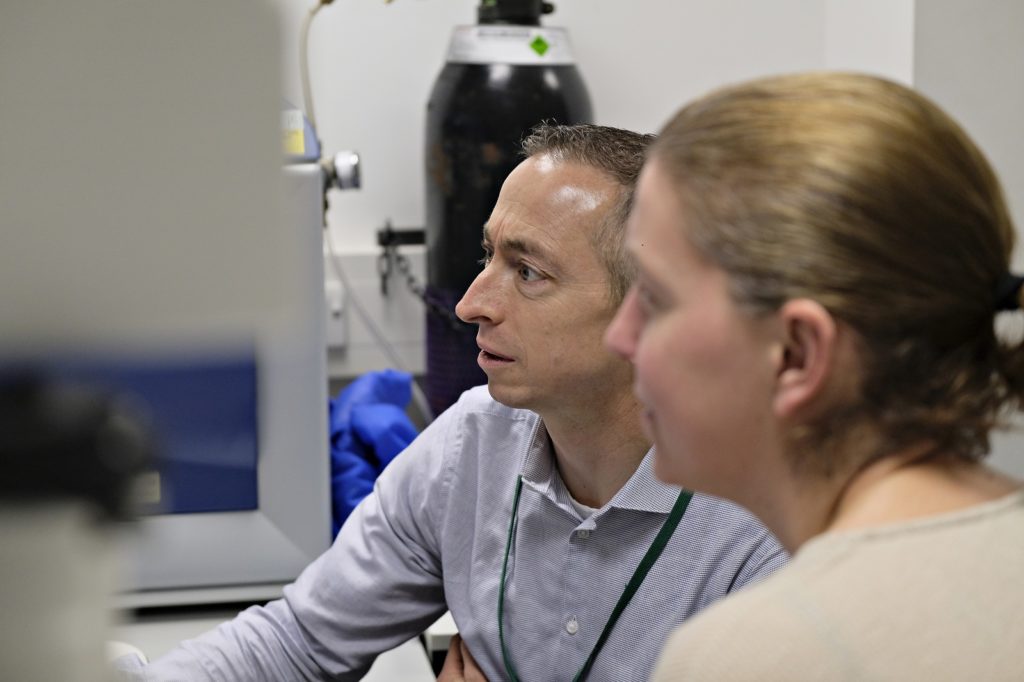
What should one expect when watching these podcasts?
Fun, personal and engaging content and very little about their actual science! This really is about them. How they started out, what shaped their careers, what they find difficult and fun. What they do outside of work and how they balance their work and home lives. The content can be very diverse and jumps about a little to engage the audience at different levels. You do not have to be a microscopist to enjoy the content. There are so many useful tips and tricks given throughout the talks, that second the third views/listens back, I still pick up more useful information (although I only skip through them as I cannot stand watching or listening to myself!).
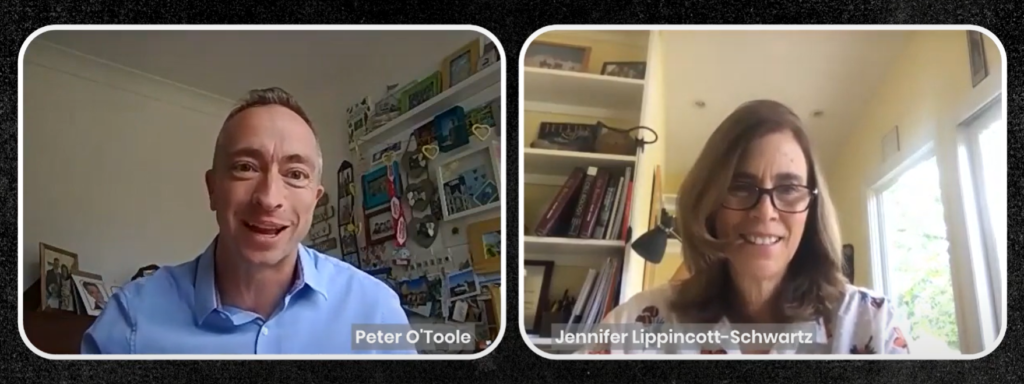
Dr. O’Toole interviews Dr. Jennifer Lippincott-Schwartz (Howard Hughes Medical Institute), one of the leading cell biologists of our time.
How you are selecting your guests?
I had to get Scott Fraser and Lucy Collinson, and yet to get Ernst (a season 2 would be great!), simply as they were key to the inspiration.
I then made a massive list of potential people to invite and tried to mix it up with speakers from across the world, from firmly established to the fast rising stars, from facility managers to those that have spin outs, all to help add diversity and demonstrate different career paths and the challenges that they can bring. I also chose those that I knew would be really engaging in person. There are many that I really would like to get in the future and itching to send out the invites, but the series was for twelve speakers and if they are a success, I hope to develop it further and have the fortune to meet with more in the future.
Twelve in total, and not all yet recorded, but still to come include Scott Fraser (with his kittens), Dan Davies (a great early adopter of new microscope techniques, leading immunologist, and top selling science author!) are two that I will tease you with.
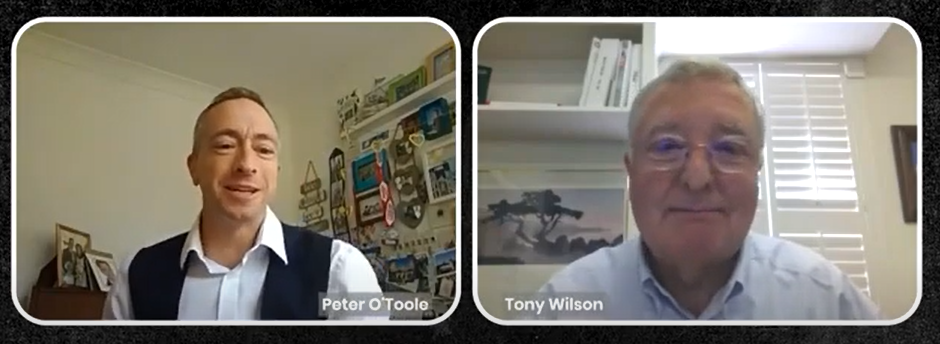
Dr. O’Toole interviews Dr. Tony Wilson (University of Oxford), one of the pioneers of confocal microscopy.
What is the most surprising detail you have learned so far in one of your interviews?
This is a really difficult question as each interview reveals something completely different and off the wall.
Petra Schwille blew me away with the number of musical instruments she could play to a high level! I was blown away with the shear diversity of instruments that she could play. Lucy Collinson being a surfing Eurovision song contest fan, Jason Swedlow being a former competitive cyclist, Tony Wilson owns prize cattle and has his own ranch, and I will not say too much more otherwise you will not tune in to the next ones ;-). Maybe the key surprising factor is just how few started out with a passion for microscopy, and how few even started out doing biology!
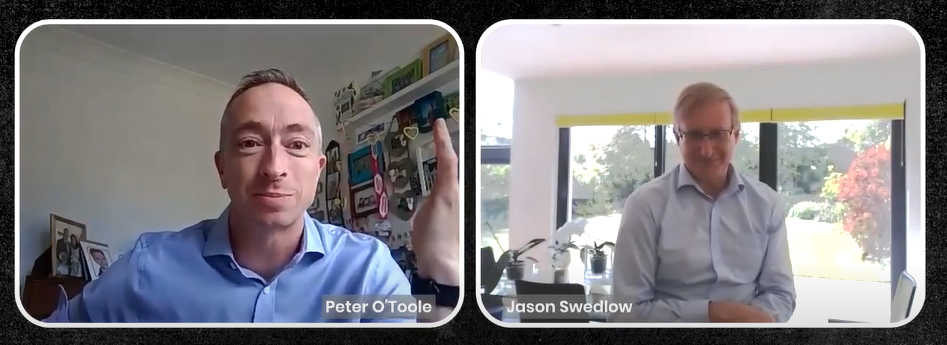
Dr. O’Toole interviews Dr. Jason Swedlow (University of Dundee), a driver of open source tools for microscopy development.
Learn More
Visit the Microscopists Podcast website to tune in!





